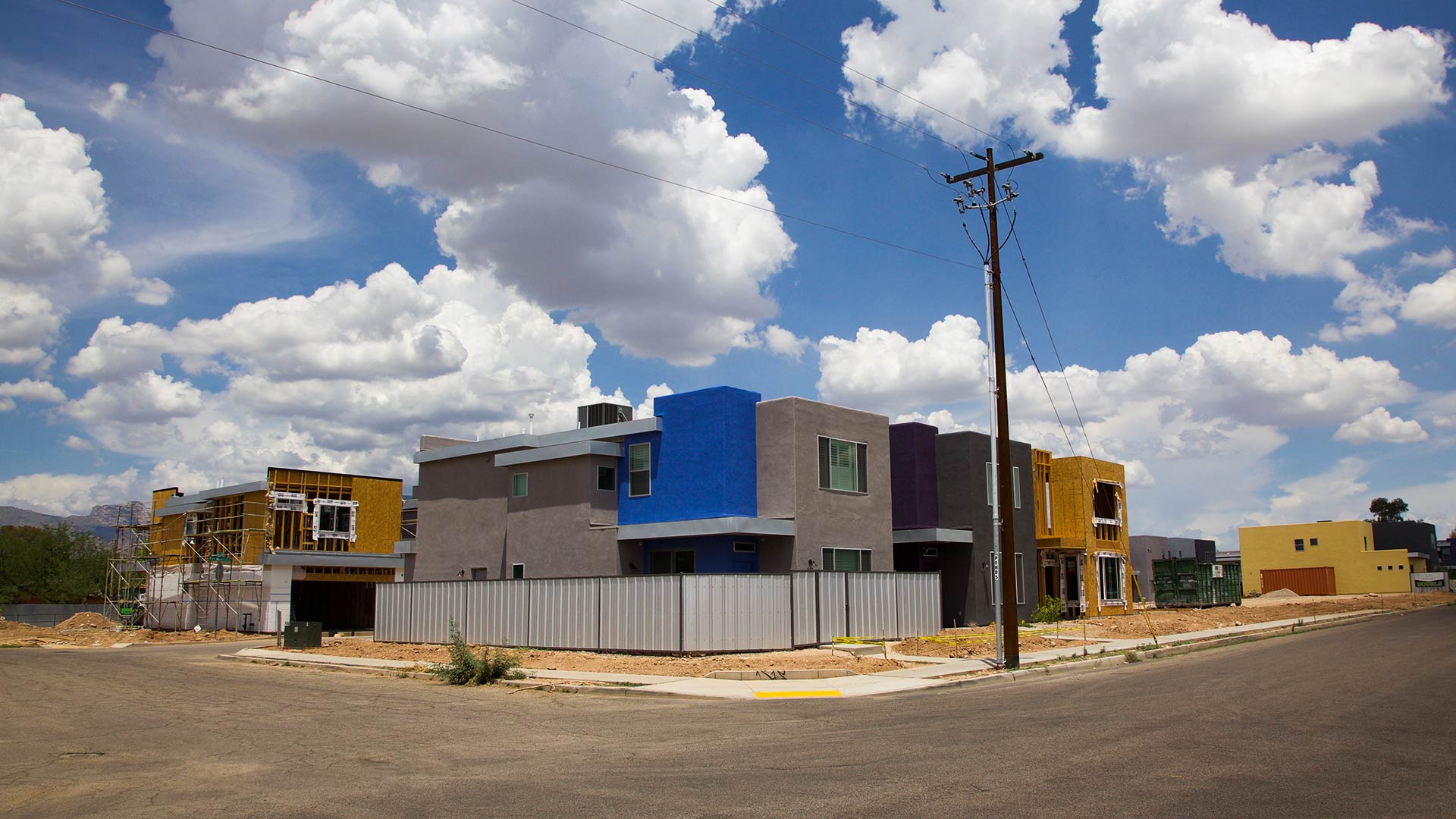 Housing units going in near First and Fort Lowell in Tucson, July 2018.
Housing units going in near First and Fort Lowell in Tucson, July 2018.
The Buzz for December 3, 2021

The cost of housing is on the rise. This week, The Buzz examines what that means for homebuyers when factoring in the cost of the COVID-19 pandemic.
Tom Simplot, director of the Arizona Department of Housing, said the supply of housing has not kept up with the state’s growth since the recession.
“Arizona, like many other areas of the country, we are experiencing an extreme supply and demand issue when it comes to housing. There simply is not enough housing,” he said.
The department is making nearly $24.5 million available to housing developers to finance projects.
But there are other barriers besides financing, such as zoning, he said.
While some developers have aimed to build homes on properties zoned for retail businesses, such plans can encounter pushback from neighbors, Simplot added.
“The neighbors need to be willing to give a little and the developer needs to be able to give a little. Right now, lately, throughout Arizona, it tends to be yes or no. And typically, historically, lately, it’s been no. No new apartments because we don’t want anything. We don’t want any change,” he said. “Well, there’s going to have to be give and take.”
Not only has the demand for housing grown, but tastes have changed, too.
“We realized home matters,” said Jeremy Sharpe, managing director of Rancho Sahuarita.
The pandemic has home buyers rethinking the kinds of spaces they want in their home, further changing the types of housing that homebuilders need to provide.
That has also been true for residents of manufactured housing, which is particularly common in the Tucson area.
While manufactured housing can relatively quickly fill some demand for housing, it can also leave residents vulnerable, such as in extreme temperatures.
“I am hopeful about technology and its potential to reduce housing costs, make housing that is more resilient to climate change. But there’s a lesson in manufactured housing,” said Mark Kear, an assistant professor in the University of Arizona School of Geography and Development.
“You can have excellent technology that when positioned in the wrong legal environment, in the wrong financial environment, in the wrong regulatory environment, social environment, will not deliver on its promise.”



By submitting your comments, you hereby give AZPM the right to post your comments and potentially use them in any other form of media operated by this institution.